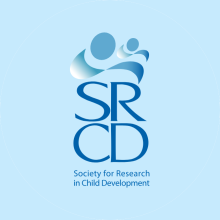November 2007 Spotlight on the SRCD Policy Fellow: Nicole Gardner Neblett, Ph.D.
2006-2007 Federal Executive Branch Policy Fellow
As I start my second year as an SRCD fellow, I find myself with greater responsibilities in my placement at the Office of the Assistant Secretary for Planning and Evaluation (ASPE) than I did in the first year of my fellowship. ASPE is located within the U.S. Department of Health and Human Services (HHS) and is the major policy advisor to the Secretary of HHS, giving the office a strategic role in supporting research and evaluation for policy making.
These greater responsibilities come from a new project, Exploration of Approaches to Preventing Sexual Risk Behaviors among High School Students, on which I serve as the lead contact person for ASPE. The goal of this new project is to explore a variety of approaches that schools and communities are using to prevent risky sexual behaviors among high school age youth. Earlier this year, I worked with other ASPE staff to design the project, issue a request for proposals, review submitted proposals, and negotiate with the contracting office. Now that the project is underway, I work on a team to monitor the activities of the contractor and ensure the integrity and rigor of the project. Participating in this project has taught me first-hand how the federal government takes a question, in this case, “What approaches for preventing sexual risky behaviors serve high school age youth?” and uses research to provide answers. These answers can then be used to make decisions on additional research, evaluation or policies.
Participating in this project has also given me the opportunity to collaborate with staff at other federal agencies, such as the Administration for Children and Families and the Centers for Disease Control and Prevention, in exploring the variety of approaches currently used. In addition to this new project, I continue to participate on a team at ASPE on the Enhanced Services for the Hard-to-Employ Demonstration and Evaluation Project, in collaboration with staff at the Administration for Children and Families. This evaluation is an effort to examine strategies to improve the employment outcomes of low-income parents. This longitudinal evaluation includes direct assessments of children’s development, which will provide evidence on the extent to which these strategies indirectly affect children. This project has allowed me the chance to see how the federal government uses research to provide information on strategies that may then be used to inform efforts to help low-income parents and children.
I also have participated in the evaluation of the Marriage and Family Strengthening Grants for Incarcerated and Reentering Fathers and their Partners, a project aimed at examining efforts to strengthen healthy relationships for couples with children, where the father is involved in the criminal justice system. In this project, I work on a team with other ASPE staff to provide guidance on issues related to child development. This project is another opportunity for me to see how research can provide useful information to policy makers.
As I near the end of my fellowship, I know that I leave better equipped with knowledge and understanding of the role research plays in the policy making process, which will help me better serve children and families in the future.
